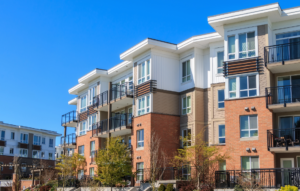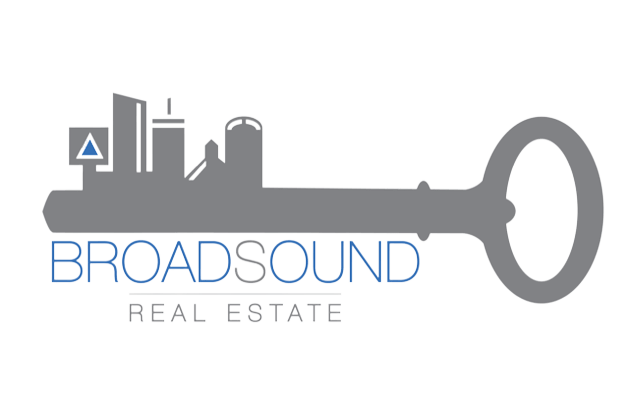When buying a condo in Massachusetts, you need to understand that you are buying a part of something bigger.
You’ll own your specific unit as outlined by your deed, which also specifies your ownership percentage of the whole complex. Unlike single-family properties, condos involve communal living and shared decision-making, which can offer both social and financial benefits.
However, navigating homeowners’ associations, understanding complex legalities, and evaluating shared infrastructures can be daunting.
My goal is to demystify this process, outlining the essential steps, considerations, and legal nuances vital for a successful investment in this article.
I hope it helps prospective buyers make informed decisions, highlighting key differences in ownership, financial implications, and community dynamics specific to Massachusetts’ condo market.
Keep reading to equip yourself with an understanding of the unique blend of individual and collective ownership that defines the condo living experience in Massachusetts.
Table of Contents
ToggleUnderstanding Condominium Ownership
Definition and Structure
A condominium, or condo, is a private residence within a larger complex. Unlike a single-family home, a condo owner only has exclusive ownership of the interior space of their unit. The common areas, such as hallways, roofs, and recreational facilities, are co-owned with other residents.
How much you pay is determined by your unit’s size relative to the total living space in the complex, expressed as a percentage of ownership.
Condo living offers various benefits, including less maintenance, access to amenities, and often a more affordable entry price compared to single-family homes. However, this comes with trade-offs such as closer living quarters, homeowners’ association (HOA) fees, and community rules.
Common Ownership
In a condominium setting, the concept of common ownership encompasses much more than just shared spaces. It means a collective responsibility for the upkeep and financial maintenance of common areas utilized by all residents, such as hallways, roofs, gardens, and amenities like gyms, pools, and tennis courts. This communal lifestyle means that costs for repairs and maintenance of these areas are divided among all condo owners.
Understanding the specifics of what your ownership entails is crucial. This includes knowing whether certain amenities like parking spaces come deeded (directly owned as part of your condo) or are assigned (controlled by the association).
Additionally, condominiums vary in terms of owner responsibilities; for example, some may require owners to maintain all exterior doors and windows, while others do not. Remember that every condominium is different!
The concept also extends to exclusive common areas, which are spaces like decks, patios, or small yards designated for the private use of a specific unit but whose maintenance costs are shared by the entire condominium community. All of these details should be clearly outlined in the condominium’s master deed and bylaws.
Effective condominium management plays a critical role in this ecosystem.
It involves developing and adhering to a budget that covers the maintenance and replacement of common areas without imposing unexpected financial burdens, known as special assessments, on the homeowners. A well-managed condo ensures that these shared spaces are kept in good condition, enhancing the living experience for all residents without unforeseen costs.
By thoroughly reviewing the condominium’s master deed and associated documents, prospective buyers can gain a clear understanding of their rights, responsibilities, and financial commitments.
This knowledge is essential for making an informed decision when considering a condominium purchase and for understanding the unique aspects of communal living and ownership.
Advantages and Disadvantages of Buying a Condo in Massachusetts
Benefits of Condo Ownership
Owning a condo in Massachusetts can be a wise financial decision, particularly for those looking to maximize their upfront savings. Condos often come at a lower cost than single-family homes, allowing buyers to afford more space or luxurious amenities like swimming pools, fitness centers, and community spaces that might otherwise be out of reach.
Additionally, one of the primary benefits of condo life is the reduction in maintenance responsibilities. The homeowners’ association (HOA) or property management takes care of external upkeep, including snow removal, landscaping, and repairs to shared structures. This can significantly reduce the time and money owners need to spend on exterior maintenance tasks.
Pro’s of Owning a Condo
- Reduced personal maintenance and repair responsibilities.
- Shared maintenance costs can lead to savings.
- Access to amenities that enhance lifestyle.
- Lower purchase price compared to standalone houses.
- Enhanced security and community living can lead to a more social environment.
Disadvantages of Condo Ownership
Condo living isn’t for everyone. One major consideration is the lack of privacy and space, as units are often closely situated. This can be a significant drawback for those who value their privacy and want to avoid the “fishbowl” feeling of close-quarter living.
Another potential downside is the loss of individual control. Living in a condo means adhering to community rules and regulations set by the HOA, which can include restrictions on renovations, pet ownership, and even the color of your curtains.
Additionally, decisions about the property are made collectively, which can be frustrating if you disagree with the majority.
Con’s of Owning a Condo
- Mandatory monthly HOA or condo association fees.
- Potential for reduced privacy compared to detached homes.
- Strict rules and regulations that must be followed.
- Shared decision-making may limit individual control.
- Limited outdoor space and personal property area.
Deciding whether to purchase a condo involves weighing these pros and cons against your personal preferences, lifestyle, and financial situation. It’s crucial to thoroughly research and consider all aspects of condo living before making a decision.
A condo can be a fantastic investment and living space for the right buyer, but it’s essential to enter into such a purchase with all the information needed to make an informed choice.
Understanding Condo Fees and Governance in Massachusetts
Condo Fees Variability
The Condo fees from the Homeowner Association (HOA) can differ significantly across different complexes, influenced by factors like maintenance levels, included utilities, and available amenities. While a lower condo fee might seem appealing, it could indicate neglected maintenance or frequent special assessments to cover unforeseen expenses.
Unlike single-family homes, where maintenance costs can fluctuate, condo fees are a consistent monthly expenditure that contributes to the overall upkeep of the complex.
Essential Condo Documents
Prior to purchasing a condo, it’s important to review the condominium documents thoroughly.
This includes the Declaration of Trust, which establishes the legal framework of the condo community, the Master Deed, detailing unit ownership and common area specifics; and the Condominium Bylaws, outlining the operational aspects and governance of the complex. These documents provide crucial information about your rights, responsibilities, and the financial health of the community.
For those interested in the legal foundation and governance of condominiums in Massachusetts, the Declaration of Trust is governed by Massachusetts General Law, specifically under Chapter 183. This chapter outlines the legal framework for condominium operation and ownership. A thorough understanding is crucial for any prospective condo buyer or current owner. For a detailed overview, please refer to the Massachusetts General Laws, Chapter 183.
Condo Insurance
Condo owners should understand the difference between “bare walls” and “all-in” insurance policies.
While the Master Insurance Policy, covered by HOA fees, typically includes common areas, interior unit coverage varies.
“Bare walls” means the owner is responsible for interior fixtures, while “all-in” covers both exterior and interior, excluding personal property.
Informed Decision-Making
Purchasing a condo in Massachusetts requires due diligence beyond that of buying a single-family home.
Prospective buyers should familiarize themselves with condo terminology, budgeting, and the specific rules and regulations of the complex to make an informed decision. Understanding these aspects ensures that you’re investing in a well-managed, financially stable community that aligns with your lifestyle and values.
Conclusion
Buying a condo in Massachusetts has a unique set of considerations compared to acquiring a single-family home. As a potential buyer, you must take a closer examination to determine what’s best for you based on your specific situation.
Opting for a condo in Massachusetts could be the perfect fit, depending on your needs and lifestyle. However, it’s crucial to enter this process with full awareness of the distinctive aspects involved.
If you’re interested in exploring condominium options within the Massachusetts area, or if you’re seeking advice on finding the right property for you, I’m here to help.
Click here to contact me directly, or click here to schedule a phone call with me.
Let’s start your journey to finding the ideal property in Massachusetts that suits your preferences and requirements.
Keep reading to learn about the important terms you should know when buying a condo in Massachusetts.
_________________________________________________________________________
Important Terms You Should Know When Buying a Condo
Homeowners Association (HOA)
An organization that governs, manages, and enforces regulations for a condominium community as defined in the Declaration of Trust, with membership automatic upon purchase within the community.
Master Deed
Defines individual and common property responsibilities within a condominium complex, clarifying ownership boundaries and maintenance duties.
Owner Occupant/Non-Owner Occupant
Describes whether a unit is inhabited by its owner or rented out, impacting community dynamics and maintenance.
HOA Fee
A regular payment made to the management company covering maintenance and operational expenses like snow and garbage removal, with a portion allocated to reserve funds for major repairs or emergencies.
Management Company
Contracted by the HOA to handle day-to-day operations of the condominium complex, including fee collection, accounting, and coordination of services like snow and trash removal, under the HOA’s direction.
Owner Occupied Ratio
The proportion of resident-owned units versus rented units, a factor considered by lenders due to its implications for property care and value.
Reserve Funds
Savings accumulated for major maintenance or unexpected emergencies, funded by a portion of monthly HOA fees, reflecting a complex’s financial prudence.
Meeting Minutes
A summary of discussions and decisions from board and association meetings, distributed to keep HOA members informed.
Condo Questionnaire
A form used by banks to evaluate a condominium’s compliance with lending standards before financing an individual unit, covering legal disputes, payment delinquencies, reserve funds, and more, to assess financial health.
Declaration of Trust
This document establishes the condominium board, delineating its responsibilities and governance structure for the HOA.
Board of Directors
In larger housing complexes, the Homeowners’ Association (HOA) Board of Directors is chosen through elections to oversee operations. This body is tasked with daily decision-making to ensure the smooth operation of the HOA and property, including rule enforcement, financial oversight, bylaw amendments, reserve funding, and management of the property management company.
Exclusive Use
Designates parts of common areas for individual use, such as private decks, with maintenance costs shared by all but usage rights exclusive to one owner.
Budget
The financial blueprint for condominiums, this plan forecasts the coming year’s expenses and income. It outlines anticipated income from various fees (HOA, late charges, usage fees, etc.) and allocates funds to different needs, such as landscaping, utilities, and management costs.
Bylaws
Part of the declaration of trust, bylaws are the regulations governing the board’s functioning, detailing election procedures, terms, voting rights, and other administrative aspects.
Common Area
Shared spaces accessible to all residents include amenities such as pools, tennis courts, parking areas, walkways, and landscaped grounds. Each resident has a stake in these areas and is granted access.
Thank you for reading till the end. I hope you enjoyed this article. Remember, if you need assistance buying or selling a property in Massachusetts, my team and I are here to help you!















![eBook How to Increase Home Value [7 Simple Ways]](https://realestatejuanc.com/wp-content/uploads/2022/03/FORMAS-WAYS-TO-INCREASE-YOUR-HOME-VALUE.png)